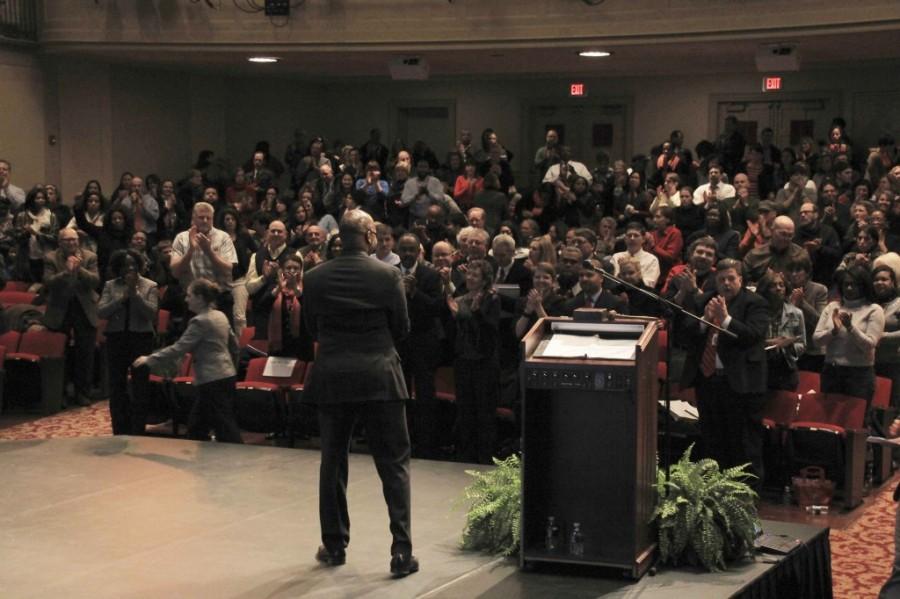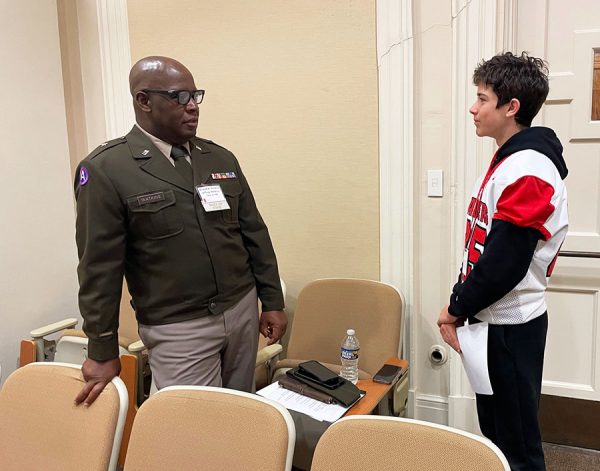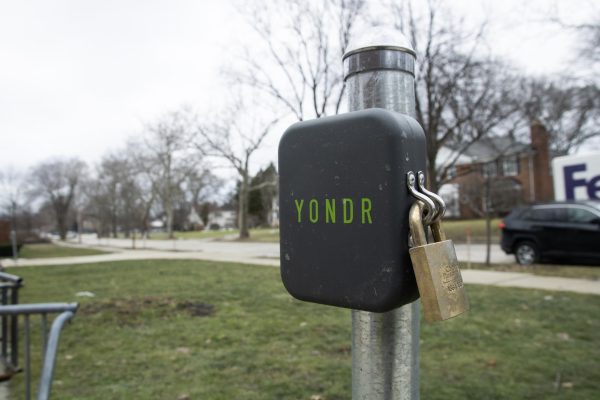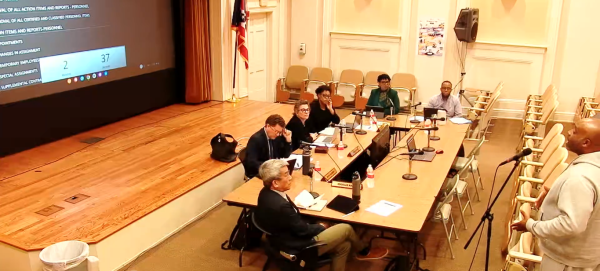If Students Made the State of the Schools Speech
Lunch lines, dress code are suggested topics for superintendent’s upcoming speech
Superintendent Gregory C. Hutchings, Jr. addresses the crowd at his first State of the Schools address last year.
Students who spend their days here know a lot about the state of their school but not much about the State of the Schools.
The superintendent’s annual State of the Schools speech informs the community of the district’s current status. Superintendent Gregory C. Hutchings, Jr. will deliver this year’s address in the high school’s large auditorium Feb. 10 at 6 p.m. While former Superintendent Mark Freeman engaged in this tradition, Hutchings has made the speech a larger event. More than 400 people attended last year’s SOTS event, which included testimonials from students and celebratory music.
Last year Hutchings’ theme was “I Am Shaker,” and in his speech, which referenced the district’s five year strategic plan, he highlighted the need to “develop an extensive recruitment plan for the future so that we can attract and retain the best teaching candidates possible,” remove the college preparatory “CP” label and commit to earning the International Baccalaureate Middle Years Programme certificate.
Few students seem to know what the event is, but when it was explained, they volunteered opinions about what the speech should address.
Students said the biggest issues seemed the be the length of the lunch lines, school closings and delays and testing. “There should definitely be more [snow days],” said senior Charles Bates.
Bates also would like renovations in the older schools’ facilities. “A lot of things are really beat up and old,” he said.
Some students, such as sophomore Maia Harris, offered unique suggestions.
“There should be more attention on women’s sports,” Harris said.
She also wanted a more strict school dress code. “Girls sometimes come to school half-dressed,” she said.
Other students miss the ability to use the egress. “I want the egress back,” senior Deborah Falokun said. “The study tables that used to be there were useful because you could study and eat lunch, and now you can’t do that.”
Alexa Jankowsky and Elena Weingart contributed reporting.





